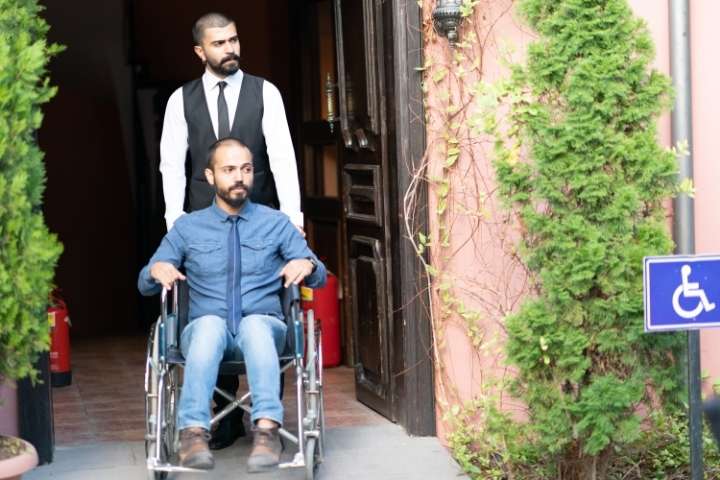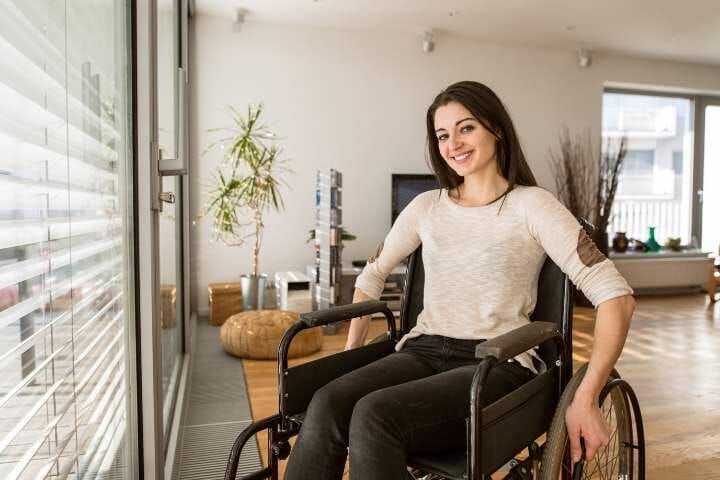
Ensuring ADA compliance in bars, nightclubs, and entertainment venues is not just a legal requirement but also a way to foster inclusivity and provide equal access to everyone. By making these spaces accessible, we can create an environment where people with disabilities can fully participate in the vibrant social scene. In this article, we will delve into the importance of ADA compliance, explore key considerations, and highlight real-life examples difficulties people with disabilities face in these venues.
The Impact of ADA Compliance
- Enhancing Accessibility for AllADA compliance goes beyond mere legal obligations; it’s about creating an inclusive environment where everyone feels welcome. By removing barriers, such as inaccessible entrances, lack of ramps, or narrow walkways, bars, nightclubs, and entertainment venues can open their doors to a wider audience.
- Improving Social IntegrationWhen individuals with disabilities can access these venues without limitations, it promotes social integration. People can come together, celebrate, and enjoy entertainment without feeling excluded due to physical barriers. ADA compliance breaks down these barriers and encourages diverse social connections.
Key Considerations for ADA Compliance
- Entrances and PathwaysThe first step towards ADA compliance is to ensure accessible entrances and pathways. Installing ramps with proper inclines, wide enough doorways, and accessible parking spaces with appropriate signage are crucial. This ensures smooth access for individuals using mobility devices, such as wheelchairs or walkers.
- Interior Layout and Seating ArrangementsThe interior layout of a venue plays a significant role in providing accessible experiences. It’s essential to have well-spaced tables, accessible seating areas, and maneuverable pathways. Additionally, ensuring that bar counters and serving areas are at an accessible height is vital for individuals with mobility challenges.
- Restroom FacilitiesADA-compliant restrooms are a must for any bar, nightclub, or entertainment venue. These spaces should have appropriate signage, clear pathways, and spacious stalls equipped with grab bars. Providing accessible facilities ensures equal access and dignity for all patrons.
Difficulties Faced by Disabled Individuals
- Limited Physical AccessibilityMany bars, nightclubs, and entertainment venues have architectural features that present challenges for individuals with mobility impairments. Steps, narrow doorways, or lack of elevators can make it difficult for wheelchair users or those with mobility aids to enter or navigate the premises.
- Inadequate Visual and Auditory AccommodationsDim lighting, flashing lights, or loud music in these venues can pose challenges for individuals with visual or auditory impairments. It becomes crucial to provide proper lighting, alternative visual cues, and assistive listening devices to ensure an inclusive experience for all patrons.
- Communication BarriersCrowded and noisy environments can hinder effective communication for individuals with hearing impairments. Venues can address this by training staff in basic sign language or providing communication boards to facilitate better interaction with customers.

Strategies to Address Difficulties
- Physical Accessibility UpgradesVenue owners can invest in accessibility upgrades such as ramps, wider doorways, and accessible seating areas. Additionally, installing elevators or lifts can ensure access to multiple floors, allowing everyone to enjoy different parts of the venue.
- Sensory ConsiderationsProviding well-lit areas, offering quieter zones for individuals with sensory sensitivities, and using visual aids or captions can greatly enhance the experience for patrons with visual or auditory impairments.
- Staff Training and AwarenessEducating staff members about disability etiquette, basic sign language, and awareness of diverse needs can greatly improve interactions and ensure a more inclusive and accommodating environment.
ADA compliance in bars, nightclubs, and entertainment venues is not only a legal requirement but also an opportunity to create inclusive spaces that cater to the needs of all individuals. By addressing physical accessibility, sensory considerations, and communication barriers, venues can ensure that everyone can fully enjoy their offerings. Let’s strive towards creating an environment where all patrons, regardless of their abilities, feel welcome and can participate in the vibrant social scene with ease.
